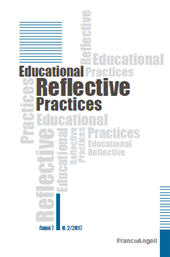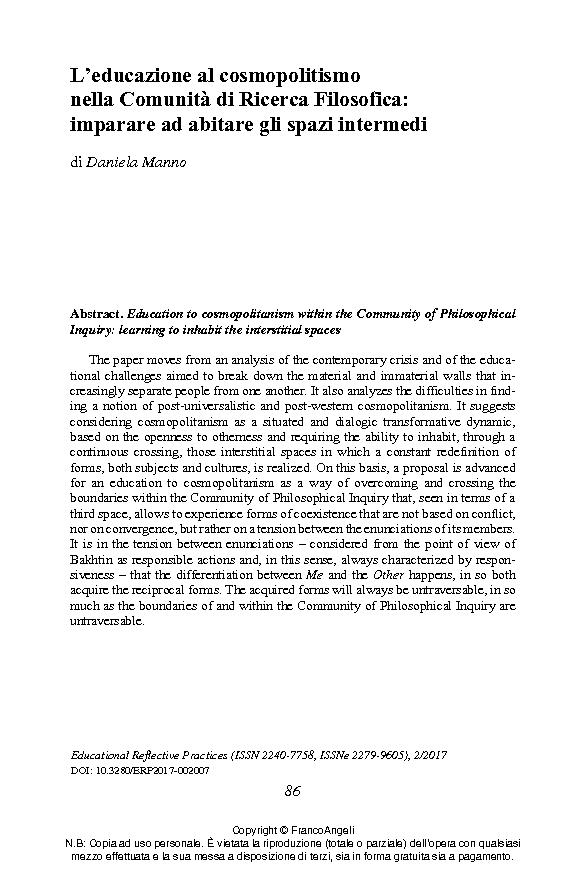L'educazione al cosmopolitismo nella Comunità di Ricerca Filosofica : imparare ad abitare gli spazi intermedi
86-106 p.
The paper moves from an analysis of the contemporary crisis and of the educational challenges aimed to break down the material and immaterial walls that increasingly separate people from one another. It also analyzes the difficulties in finding a notion of post-universalistic and post-western cosmopolitanism. It suggests considering cosmopolitanism as a situated and dialogic transformative dynamic, based on the openness to otherness and requiring the ability to inhabit, through a continuous crossing, those interstitial spaces in which a constant re-definition of forms, both subjects and cultures, is realized. On this basis, a proposal is advanced for an education to cosmopolitanism as a way of overcoming and crossing the boundaries within the Community of Philosophical Inquiry that, seen in terms of a third space, allows to experience forms of coexistence that are not based on conflict, nor on convergence, but rather on a tension between the enunciations of its members.
It is in the tension between enunciations - considered from the point of view of Bakhtin as responsible actions and, in this sense, always characterized by responsiveness - that the differentiation between Me and the Other happens, in so both acquire the reciprocal forms. The acquired forms will always be untraversable, in so much as the boundaries of and within the Community of Philosophical Inquiry are untraversable. [Publishers' text].
Is part of
Educational reflective practices : 2, 2017-
Articles from the same issue (available individually)
-
Information
ISSN: 2279-9605



